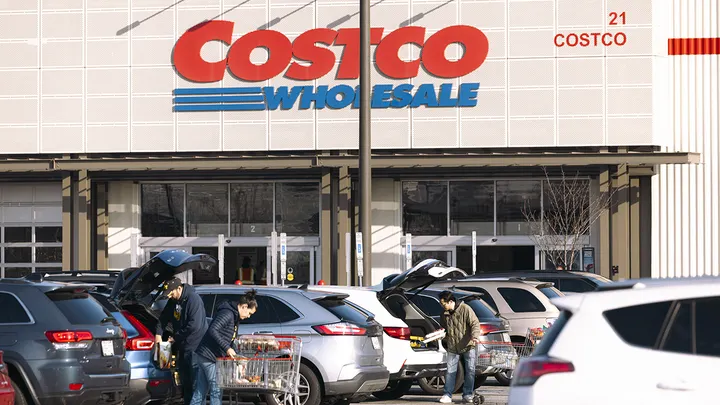In a move that has some shaking their heads, Costco has recalled nearly 80,000 pounds of its Kirkland Signature butter after the US Food and Drug Administration (FDA) flagged a labeling issue.
The recall, which affects both unsalted and salted varieties of Kirkland Signature Sweet Cream Butter, came after it was discovered that the product packaging failed to include a necessary allergen disclaimer—specifically the statement that the product “Contains Milk.”
This voluntary recall, initiated by Continental Dairy Facilities Southwest LLC, involves 79,200 pounds of butter, distributed to various parts of Texas. It includes a total of 1,300 cases, containing 46,800 pounds of Kirkland Signature Unsalted Sweet Cream Butter and 32,400 pounds of the Salted Sweet Cream Butter. These products were packaged with labels listing cream as an ingredient, but the crucial “Contains Milk” statement was notably absent.
The FDA has classified this recall as “Class II,” indicating that while exposure to the butter may cause temporary health consequences, the likelihood of serious adverse effects is remote. Despite this, the recall has raised eyebrows, particularly on social media, where many consumers are questioning why such a common product needs a disclaimer for milk—an ingredient that is universally known to be in butter.
“Seems a bit excessive to have to label butter with ‘Contains Milk… As someone with dietary restrictions, I get it, but this is ridiculous. Everyone knows butter is made from milk!,'” wrote Kristen Meg on X (formerly Twitter).
Others shared similar frustrations.
“Can y’all please safely dispose of it at my house? I have a lot of holiday baking to do,”one user jokingly offered.
The recall, though, has drawn attention to a growing issue surrounding food labeling in the United States, where clear communication about allergens is essential for public safety.
Under US law, food manufacturers are required to include allergen disclosures for common allergens like milk, eggs, fish, and peanuts. The issue here is that although the butter contains cream (which is derived from milk), the absence of the “Contains Milk” label could be problematic for individuals with severe dairy allergies, potentially leading to life-threatening reactions.
Costco, which has built its brand with the Kirkland Signature line of products, is no stranger to quality control, but this oversight has created a stir. The recall does not appear to be linked to any actual allergic reactions, though the FDA has yet to confirm whether any such incidents occurred. As of now, the retailer has not issued a public statement beyond the recall announcement.
Despite the controversy, it’s clear that the recall is unlikely to harm Costco’s reputation for quality products. The retailer’s signature brand, Kirkland, continues to offer consumers good value, often priced lower than national brands, and is a staple at the company’s warehouse locations across the country. The recall, while unfortunate, appears to be an isolated incident within Costco’s larger track record of consumer satisfaction.
This recall comes just in time for the holiday season, when butter consumption typically spikes as people prepare to bake goods for celebrations. As the public debate continues, Costco shoppers are advised to check their pantries for the recalled products, which include Kirkland Signature Unsalted Sweet Cream Butter with best-by dates of February 22, 2025, February 23, 2025, March 22, 2025, and March 23, 2025, and Salted Sweet Cream Butter with best-by dates of February 23, 2025, and March 29, 2025.
While the recall may seem trivial to some, it underscores the critical importance of clear and accurate food labeling, especially for people with life-threatening allergies. However, many continue to question whether such a labeling error warrants the level of public attention and action it has received.
With input from FOX Business, USA Today, and Independent.









